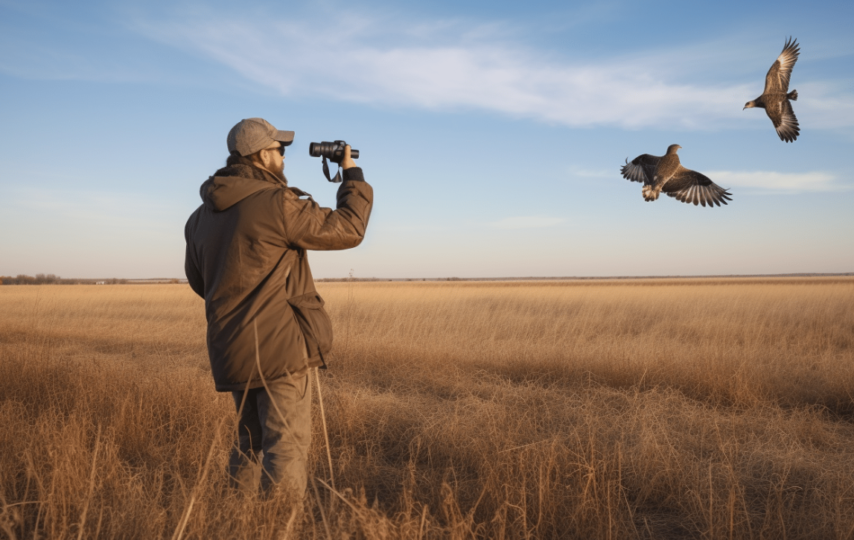The chirping of birds, the fluttering of wings, and the colorful plumage of our feathered friends can be mesmerizing. From house sparrows in urban gardens to rare species in remote forests, we are fortunate to share this planet with these magnificent creatures.
However, their populations worldwide have been declining alarmingly due to various human activities such as habitat destruction and climate change. As avid bird watchers and nature enthusiasts, we must appreciate these winged wonders and take action towards their conservation.
Join Victoria Gerrard La Crosse WI, as she explores the concept of ethical bird watching and its importance in protecting our feathered friends for generations to come.
Importance Of Ethical Bird Watching And Conservation
Bird watching is a fascinating and rewarding hobby, but it requires an ethical approach, says Victoria Gerrard La Crosse WI. Consider the welfare of birds, their habitats, and the wider environment. Following ethical guidelines can help conserve bird populations and protect the natural world.
Be respectful, avoid unnecessary disturbance, and protect their habitats. Ethical bird watching is about enjoying these creatures’ beauty while helping ensure their future. Your actions can make a difference in bird populations worldwide.
Understanding The Impact Of Human Activities On Birds And Their Habitats
Birds are captivating creatures that have fascinated people for centuries. However, human activities have greatly affected birds and their habitats. The destruction of natural habitats due to industrialization and urbanization has led to the decline of many bird species.
Pollution from various sources has also disrupted ecosystems, causing the loss of bird populations. Even activities like hiking and birdwatching can harm bird habitats. Understanding these impacts is crucial to prevent further damage. By preserving and protecting natural habitats, we can ensure the thriving of these beautiful creatures for generations to come.
Supporting Conservation Efforts Through Citizen Science Programs And Donations
Victoria Gerrard La Crosse says conservation is crucial for all living organisms. Citizen science programs and donations support global conservation efforts. These programs allow people to contribute to conservation projects regardless of background or qualifications.
Volunteers collect data and assist researchers in understanding ecological processes. Donations fund initiatives from protecting endangered species to preserving habitats. Together, citizen science and donations make a tangible difference in saving our planet’s biodiversity.
Creating A Bird-Friendly Backyard With Native Plants And Feeders
Transform your backyard into a haven for birds with native plants and feeders. By planting native species, you’ll beautify your space and provide a source of food and shelter for birds adapted to your region’s unique ecosystem.
Meanwhile, a well-placed and maintained feeder can supplement birds’ diets during lean times and offer an exciting view of your feathered visitors. Whether you’re looking to attract hummingbirds with colorful blooms or create a habitat for songbirds with dense shrubs, a thoughtfully designed, bird-friendly backyard can offer years of enjoyment for you and your avian neighbors.
Educating Others About Ethical Bird-Watching And Conservation Practices
Bird watching brings joy to many, but protecting the birds we admire is crucial. Ethical bird-watching and conservation practices go hand in hand. Wherever we observe birds, we can follow guidelines to minimize our impact. It’s important to avoid disturbing the birds, keep a safe distance, and preserve nesting areas.
We should also preserve natural habitats by avoiding littering or damaging the environment. Educating ourselves and others can enjoy bird watching while promoting the sustainability of avian species and their habitats.
Final Thoughts
In our passion for bird watching, it’s crucial to understand and respect the delicate balance of nature. Each unique feathered friend enriches our world. However, their existence is threatened by human activities.
Ethical bird watching, conservation education, supporting scientific programs, and creating bird-friendly environments in our backyards are steps towards preserving these incredible creatures. Our actions, no matter how small, contribute to preserving the captivating world of our winged companions. Together, we can ensure the melodious symphony of birdsong continues for generations to come.


